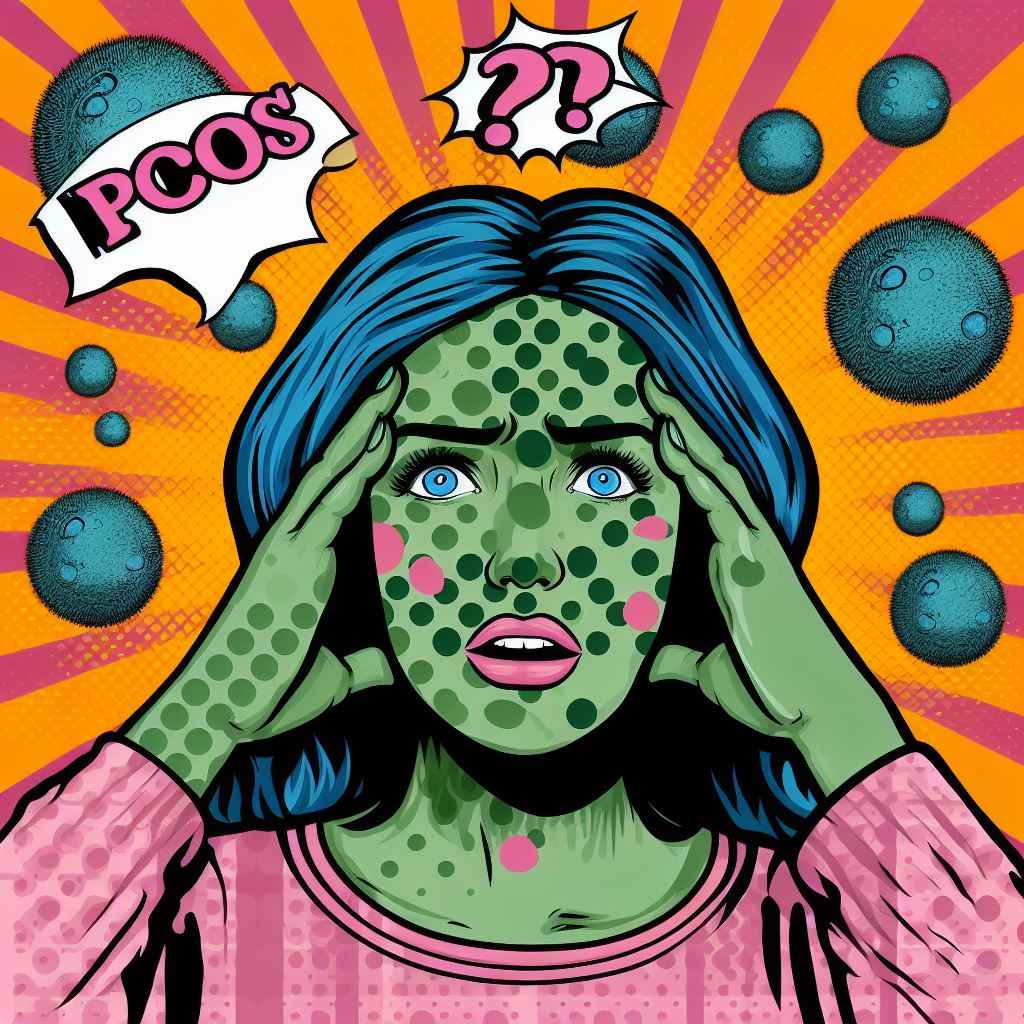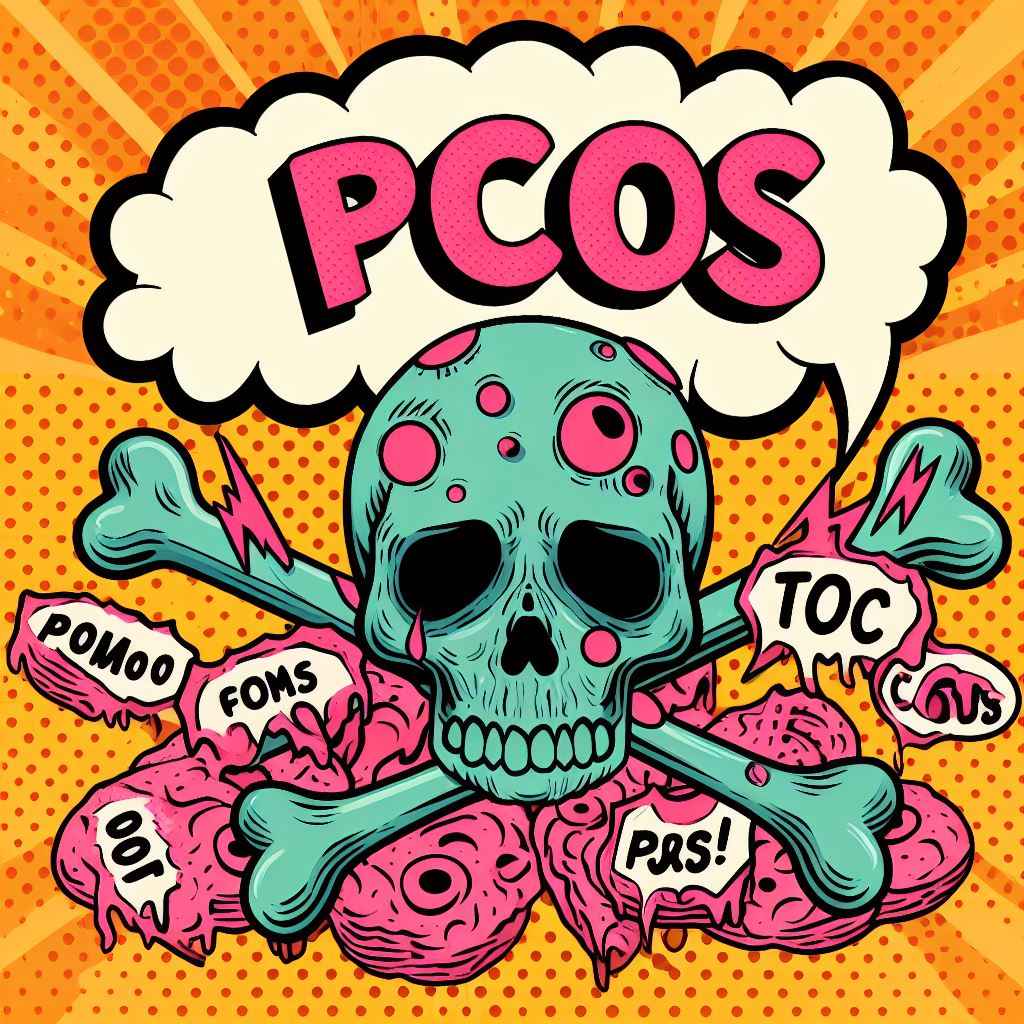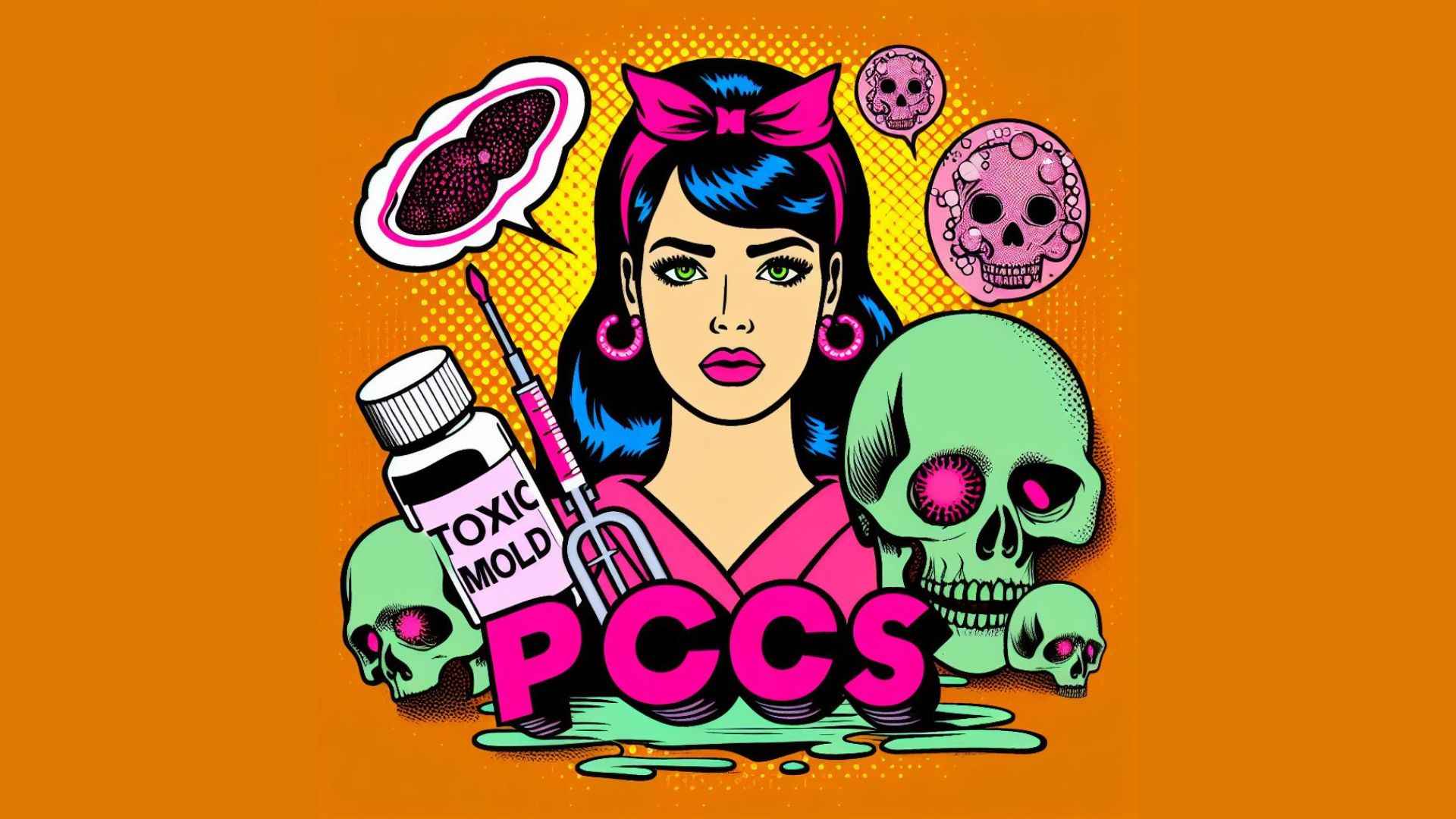Polycystic Ovary Syndrome (PCOS) is a complex hormonal disorder affecting millions of women worldwide. Characterized by hormonal imbalances, ovarian cysts, and irregular menstrual cycles, PCOS can significantly impact a woman’s reproductive health and overall well-being. While genetics and lifestyle factors play crucial roles in the development of PCOS, emerging research suggests that environmental factors, such as mold exposure, may also contribute to its onset and exacerbation.
Understanding the Role of Hormones

What is PCOS?
PCOS is a hormonal disorder that affects women of reproductive age. It is characterized by elevated levels of androgens (male hormones) and insulin resistance, leading to irregular menstrual cycles, ovarian cysts, acne, weight gain, and fertility issues.
Link Between Hormones and PCOS
Hormonal imbalances, particularly elevated levels of androgens such as testosterone, play a central role in the development and progression of PCOS. These imbalances disrupt normal ovarian function, leading to irregular ovulation and the formation of ovarian cysts.
Connection Between Diet and PCOS

Impact of Diet on Hormonal Balance
Diet plays a crucial role in managing PCOS symptoms by regulating hormonal balance and insulin sensitivity. A diet rich in whole foods, vegetables, lean proteins, and healthy fats can help stabilize blood sugar levels and reduce inflammation, thereby alleviating PCOS symptoms.
Foods That May Aggravate PCOS Symptoms
On the other hand, a diet high in processed foods, refined sugars, and unhealthy fats can exacerbate insulin resistance and hormonal imbalances, worsening PCOS symptoms. Excessive consumption of sugary beverages, fast food, and refined carbohydrates should be avoided to mitigate the risk of PCOS complications.
The Influence of Lifestyle on PCOS

Importance of Exercise
Regular physical activity is essential for managing PCOS symptoms and improving overall health. Exercise helps increase insulin sensitivity, promote weight loss, and regulate menstrual cycles in women with PCOS. Incorporating a combination of cardiovascular exercise, strength training, and flexibility exercises can yield significant benefits.
Stress Management Techniques
Chronic stress can exacerbate hormonal imbalances and contribute to the progression of PCOS. Implementing stress management techniques such as meditation, yoga, deep breathing exercises, and adequate sleep can help reduce stress levels and improve PCOS symptoms.
Exploring the Impact of Mold on Health

What is Mold?
Mold is a type of fungus that thrives in damp and humid environments. It can be found indoors and outdoors and is commonly present in areas with poor ventilation, water damage, or high humidity levels.
Health Risks Associated with Mold Exposure
Mold exposure can pose various health risks, particularly to individuals with respiratory conditions, allergies, or weakened immune systems. Symptoms of mold exposure may include coughing, wheezing, nasal congestion, skin irritation, and eye irritation.
The Relationship Between Mold Exposure and PCOS

Research Findings
While limited, some studies have suggested a potential link between mold exposure and hormonal imbalances, including those associated with PCOS. Mold toxins, known as mycotoxins, may disrupt endocrine function and contribute to the dysregulation of hormones involved in PCOS.
How Mold Can Aggravate PCOS Symptoms
Mold exposure may exacerbate PCOS symptoms by further disrupting hormonal balance and promoting inflammation in the body. Additionally, mold-related symptoms such as respiratory issues and allergic reactions can compound existing health concerns in women with PCOS.
Prevention and Management Strategies

Tips for Reducing Mold Exposure
To minimize the risk of mold exposure, it is essential to address moisture issues in the home, such as leaks or water damage, and maintain proper ventilation in bathrooms, kitchens, and basements. Regular cleaning and inspection of HVAC systems, air ducts, and indoor surfaces can also help prevent mold growth.
Lifestyle Changes to Manage PCOS
In addition to reducing mold exposure, implementing lifestyle changes such as adopting a balanced diet, engaging in regular exercise, managing stress effectively, and prioritizing sleep can help manage PCOS symptoms and improve overall quality of life.
Conclusion
While the exact mechanisms linking mold exposure to PCOS remain to be fully elucidated, emerging evidence suggests a potential association between the two. As such, individuals with PCOS should be mindful of indoor air quality and take proactive measures to reduce mold exposure in their living environments. By adopting a holistic approach to health that addresses both environmental and lifestyle factors, individuals with PCOS can better manage their condition and optimize their well-being.
FAQs
Can mold exposure directly cause PCOS?
While there is no direct evidence linking mold exposure to the development of PCOS, mold toxins may contribute to hormonal imbalances associated with the condition.
What are the symptoms of mold exposure?
Symptoms of mold exposure can vary but may include respiratory issues, allergies, skin irritation, and eye irritation.
How can I reduce mold exposure in my home?
To reduce mold exposure, address any moisture issues promptly, improve ventilation, and maintain cleanliness in areas prone to mold growth.
Is there a specific diet recommended for managing PCOS symptoms?
A balanced diet rich in whole foods, vegetables, lean proteins, and healthy fats is generally recommended for managing PCOS symptoms and promoting hormonal balance.
Can lifestyle changes help alleviate PCOS symptoms?
Yes, lifestyle changes such as regular exercise, stress management, adequate sleep, and a healthy diet can help alleviate PCOS symptoms and improve overall well-being.

Leave a Reply